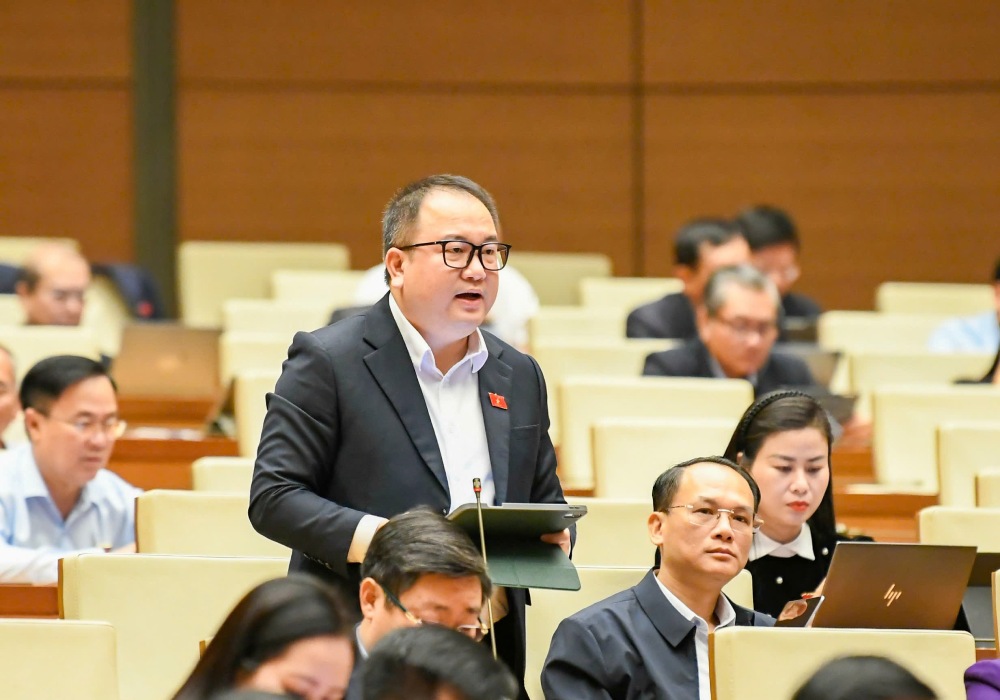On the morning of November 24, the National Assembly discussed the draft Law amending and supplementing a number of articles of the Law on Intellectual Property (SHTT).
Delegate Nguyen Hoang Bao Tran (HCMC Delegation) commented on Article 8a regulating the management and exploitation of SHTT rights. In Clause 1, the listing and self-determination of the value of social security rights is a progressive regulation, creating conditions for intellectual property to be recorded in accounting books and participate in civil, commercial and investment transactions.
However, Clause 1 is currently being extended by allowing owners to "self-determine the value" without stipulating the obligation to prove, publish the basis or minimum valuation standards.
Auditing and auditing practice shows that this is a point that can easily be taken advantage of to inflate value, transfer prices, cause losses in transactions with public assets, or make it difficult for credit institutions to appraise documents.
Therefore, delegate Nguyen Hoang Bao Tran proposed to add the principle of explanation and transparency of self-assessment methods, to ensure the integrity and reliability of the market.
Regarding Clause 2 - encouraging the use of intellectual property for mortgaging and borrowing capital, according to the delegate, this policy is completely correct and in line with the trend of knowledge economy. However, if there are no binding conditions, the "encouragement" regulation will be very difficult to implement.
Currently, banks can only accept intellectual property as collateral when there is: standard valuation method; clear asset establishment records; and a mechanism for handling and transferring assets when customers are unable to repay debts.
The new law only says "encouragement" but does not clarify which standards should be based on the valuation, how to handle assets, who is responsible when the assets are in dispute, are canceled or no longer have economic value. Without these prerequisites, Article 8a will have difficulty entering credit reality.
Regarding Clause 3, the Government provides guidance on valuation methods. According to the delegate, this phrase is still narrow and does not cover the essential elements of SHTT valuation activities.
The delegate suggested clarifying the scope of the guidelines, instead of just general regulations. International experience shows that to be successful in valuing intellectual property, at least 4 factors are needed: Set of criteria and standard valuation methods; requirements for records and data; capacity standards of organizations and individuals allowed for valuation; mechanisms for inspection, post-inspection and handling of fraud.
If these criteria are not clearly regulated in legal documents, the valuation will lack consistency, causing risks for both management agencies, property owners and the financial system and banks.

Delegate Pham Trong Nghia (Lang Son Delegation) said that the draft law does not recognize the right to SHTT of AI and does not protect works created by AI.
The delegate suggested recognizing SHTT rights for AI-generated works and applying a conditional protection model. In which, the human creative principle is emphasized as the core element.
The delegate said that it is clearly defined that AI is not the subject of power but the subject of power is humans, the last person to use/operate AI, except in cases where there is an agreement that it is another person.
This approach does not deny the role of AI but still maintains the requirement for the original nature of products and human creativity.











